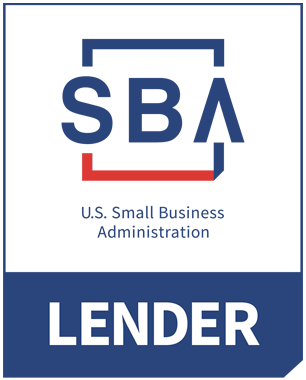Navigating SBA Loans: What Your Business Needs to Know
Small Business Administration (SBA) loans can be a lifeline for growing companies, but many business owners find them confusing at first. While these government-backed loans might seem complicated, understanding how they work and what they offer can help you access funding you might not get otherwise.
When a regular bank loan isn’t possible, and other options cost too much, SBA loans offer a helpful middle path. Let’s walk through what these loans are and how they might help your business move forward.
What are SBA loans?
First, let’s clear up a common mix-up about SBA loans. The Small Business Administration doesn’t actually give you the money directly. Instead, the SBA provides a partial government guarantee on your loan. This partnership between the SBA and banks creates a win for everyone. Banks are provided a guarantee so that they can take on loans that don’t meet conventional underwriting standards, business owners get access to necessary funds, and more companies are given a chance to grow and create more jobs.
“A lot of business owners think the SBA loan process is extraordinarily arduous, and that getting a conventional loan is faster than getting an SBA loan,” says Justin Delgado, First Utah Bank’s Chief Loan Officer. “But there really isn’t a noticeable difference. We can underwrite an SBA loan and a conventional loan within a week of each other.”
The SBA 7(a) loan: How it works
The 7(a) loan program is the most popular SBA offering, and for good reason — it’s incredibly flexible. You can borrow up to $5 million for almost any SBA-eligible business need, and banks can offer competitive rates on SBA loans that are tailored to fit those needs.
What makes 7(a) loans truly valuable is their versatility. You can use them for:
- Business acquisitions: 7(a) loans can help you purchase an existing business, allowing you to step into ownership with established operations and cash flow.
- Working capital needs: When your business needs cash to operate day-to-day, a 7(a) loan can provide the liquidity you need without draining your reserves.
- Equipment purchases: From manufacturing machinery to office technology, 7(a) loans can cover the tools your business needs to operate efficiently and grow.
- Commercial real estate acquisition/Construction: You can finance commercial property with a lower down payment than conventional loans would require, helping you preserve cash for other business needs.
- Business expansion: When your current cash flow might not support your growth plans, 7(a) loans can bridge the gap by considering your future potential rather than just your current finances.
- Refinance business debt: Improve your important cash flow by refinancing qualifying business debt.
- Tenant Improvement financing: You can finance a building for your new space, even if you are renting.
Why choose a 7(a) loan?
 The 7(a) program has some big advantages over regular bank loans. For starters, you don’t need to put as much money down. When buying real estate, regular loans might ask for 30% down, but 7(a) loans usually need just 10-15%. That means you can keep more of your cash in your business where you need it.
The 7(a) program has some big advantages over regular bank loans. For starters, you don’t need to put as much money down. When buying real estate, regular loans might ask for 30% down, but 7(a) loans usually need just 10-15%. That means you can keep more of your cash in your business where you need it.
These loans also give you more time to pay them back — up to 10 years for working capital, equipment, business acquisitions, tenant improvements, and up to 25 years for commercial real estate. Longer repayment time means smaller monthly payments, which can help your cash flow.
Unlike regular loans that mainly look at your past performance, 7(a) loans also consider your future plans. This helps new businesses or those looking to grow in new ways, where your current money situation might not show the full picture of what’s possible.
SBA Working Capital loans
First Utah Bank offers SBA Working Capital Loans that are a simpler version of the 7(a) program. These loans give you up to $150,000 with less paperwork. To qualify, your business usually needs to have been running for at least two years and meet certain SBA scoring requirements. These loans can sometimes be approved in as little as a week.
SBA 504 loans
SBA 504 loans help with buying real estate and large equipment through a unique three-part structure. A bank provides about 50% of the money, the SBA contributes about 40%, and you put in about 10%.
The SBA portion has a low, fixed interest rate for 25-years, giving you stable, predictable payments that won’t change even if interest rates go up. This helps with long-term planning and managing your cash flow.
Getting ready for an SBA loan
 Preparing for an SBA loan takes some work, but with the help of expert guidance this process shouldn’t be overwhelming. First, start with a solid business plan and realistic projections. Lenders will compare your projections with industry standards to see if they make sense.
Preparing for an SBA loan takes some work, but with the help of expert guidance this process shouldn’t be overwhelming. First, start with a solid business plan and realistic projections. Lenders will compare your projections with industry standards to see if they make sense.
You’ll need to gather several important documents, including business formation papers, business and personal financial statements, tax returns and your resume. Your lender can give you a complete checklist for your situation.
SBA loans are more flexible on collateral than conventional loans, but for loans over $350,000, the SBA requires lenders to secure all available business assets. If these are insufficient, lenders may require personal assets from owners to cover the shortfall. Inventory your business’s assets and consider personal assets to strengthen your application if needed.
Consider starting a relationship with your target lender before applying. “If you think you’re going to scale a business, you should open accounts with your preferred bank,” says Delgado. “And it never hurts to start meeting with them and establishing rapport quickly.”
Overcoming common SBA loan challenges
 Many business owners face obstacles when applying for SBA loans, but you can avoid unnecessary hurdles with good preparation.
Many business owners face obstacles when applying for SBA loans, but you can avoid unnecessary hurdles with good preparation.
Some common pitfalls include:
Overly optimistic projections: Unrealistic expectations can make lenders skeptical. Being too optimistic might feel good in the moment, but realistic projections show lenders you understand your business and the market. Work with your financial advisors to develop pragmatic forecasts based on industry standards and your specific business model. Showing that you understand potential challenges and have backup plans can actually strengthen your application.
Limited business experience: Your personal resume matters, and if you lack experience it might raise concerns about your ability to execute your business plan successfully. If you’re new to your industry, consider bringing on partners or advisors with relevant experience, or highlight transferable skills from previous roles.
Insufficient collateral: This is often the first hurdle for businesses with very few physical assets. If you don’t have meaningful collateral to bring to the table, focus on strengthening other parts of your application. Strong cash flow projections, relevant experience, and a solid business plan can help make up for limited collateral.
Finding the right bank for your SBA loans
The bank you choose can make a big difference in your SBA loan experience. First Utah Bank’s “Preferred Lender” SBA status allows us to approve SBA loans without sending them to the SBA for another review, which speeds up the process considerably.
Keep in mind that the best SBA lenders don’t just process applications, they help guide you through planning and preparation. Some banks will even meet with you long before you’re ready to apply, to answer questions and help you plan accordingly. While big national banks might offer convenience, community banks often provide more of this kind of personalized guidance, especially for businesses with unique models or needs. Community banks also have deeper connections to local economies and a better understanding of local business conditions that might affect your company.
Moving forward with SBA financing
 SBA loans can be a powerful tool for business growth when properly understood and used. The application process requires some detailed preparation and documentation, but the benefits often outweigh the requirements.
SBA loans can be a powerful tool for business growth when properly understood and used. The application process requires some detailed preparation and documentation, but the benefits often outweigh the requirements.
By working with knowledgeable lenders and approaching the process with realistic expectations, you can turn SBA financing into a valuable resource for building your company’s future. With the right understanding of the available options and expert guidance through the process, these government-backed loans can provide the foundation you need to build and scale your business.
Want to learn more? Talk with a First Utah Bank representative to find out how you can build good business credit for the future.

